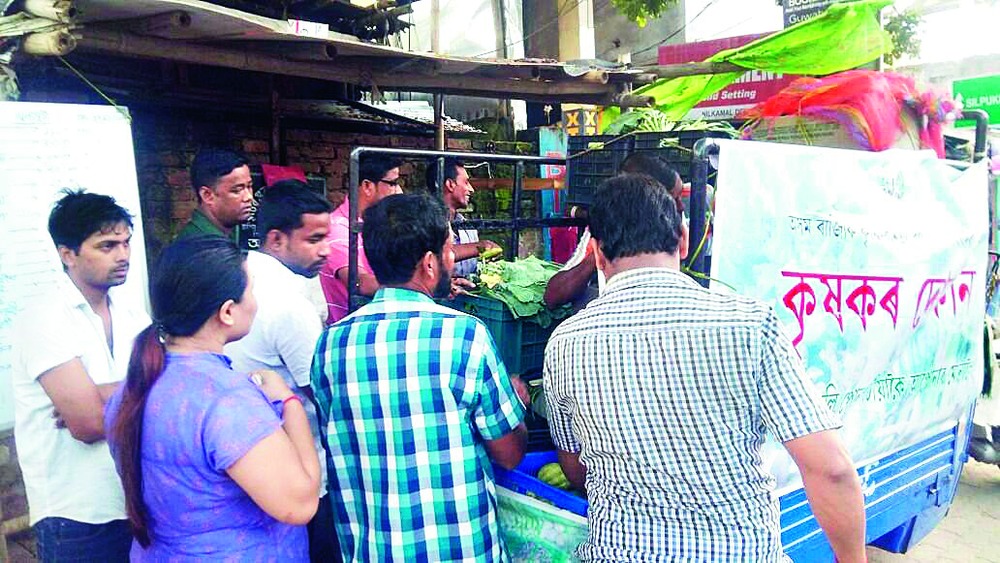
Guwahati, Sept. 30: The Assam State Agricultural Marketing Board today said it plans to open at least one farmers' shop ( krishakar dukan) in each district headquarters of the state as part of a long-term market intervention plan to check rising prices of vegetables.
"We plan to start the process of reaching out to the districts by November. But our focus in the first phase will be on lower and central Assam. We have opened three additional farmers' shops ( krishakar dukan) in Guwahati, taking the total number to eight in the city. One has already started functioning in Uzan Bazar," P.N. Das, the board's chief executive officer, told The Telegraph today.
"Two other farmers' shops will start functioning at Fancy Bazar (GMC market) and Ambari Tiniali from tomorrow while another one is coming up at Kumarpara in the future. The board has four such shops in prime areas of the city.
Earlier this month, the board had initiated a market intervention programme to cut down the role of intermediaries in the market to curb price rise besides assuring reasonable returns for farmers and quality vegetables for consumers.
"The district expansion plan will hinge on how the market intervention programme goes about. As of now, the farmers' shops in Guwahati are facing resistance from a section of retailers as the prices offered by us are at times 50 to 100 per cent lower than the retail price," Das said.
Space is a problem for the board in the city. "We have written to the Guwahati Municipal Corporation requesting intervention for affordable spaces and permission for setting up more shops across the city," he said.
Under the market intervention programme, vegetables from farmers are collected by members of the growers' societies at source (markets in rural centres) and thereafter transported on pick-vans of the board to urban markets. As of now, eight rural markets have been identified across four central Assam districts.
Officials of the board visit the field everyday to verify the price at which the growers' societies procure the vegetables from farmers before ascertaining the price at which these vegetables are to be sold in the urban markets the next day.
"We also assess the farmers' daily returns on a given day besides taking into account the prevailing wholesale prices at the Pamohi market here. The profit margin is minimal," an official of the board said.
"The board has already procured three pick-up vans for the purpose and rolled out hired auto vans to the city's markets in the first phase. "We plan to reach out to farmers of Barpeta Road soon. Since the hired vans cost a lot, we have procured four vehicles for distribution across the city's markets after the Pujas," he said.
Set up in 1976 under the Assam Agricultural Produce Market Act, 1972, the board aims to regulate the buying and selling of agriculture products.
The board has also sought technical assistance from IIT Guwahati in regard to designing the vegetable vending carts. Ten such carts will hit the road shortly. The carts to be placed at designated places, will carry a price list determined by the board and will be equipped with an electronic display board and a solar lamp.
"Funds will be crucial for sustaining the market intervention programme across the state in the long run, but we expect the state government to support us," the board's chief executive officer said.











